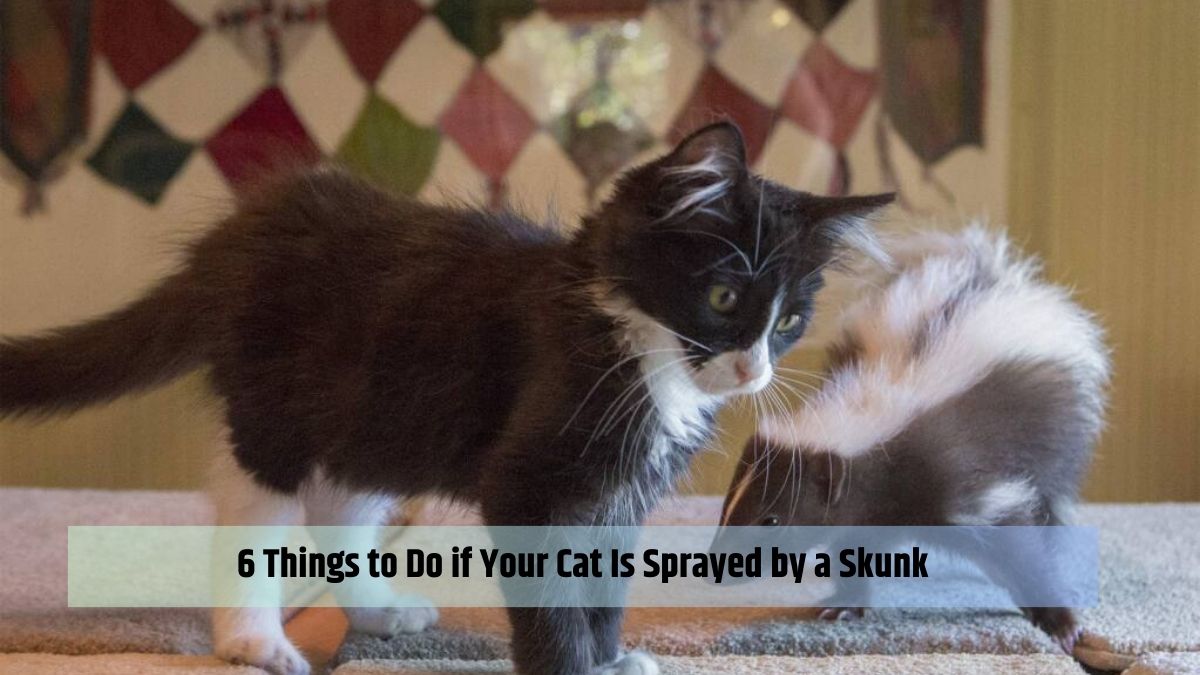When you run into a skunk, it is never a pleasant experience, and if your cat is hit by it, things may rapidly become unpleasant. The purpose of this guide is to provide information on what to do immediately in the event that a skunk sprays your cat, as well as how to get rid of the scent, so that the problem can be resolved swiftly and without any odour.
Understanding Skunk Spray
Skunk spray is a potent and persistent odour that contains various chemicals, including thiols. The distinct smell can linger on surfaces and fur, making it essential to address the issue promptly and efficiently.
Immediate Steps After the Encounter
Quick action is essential when a skunk sprays your cat. However, it’s important to avoid the cat’s face during the initial steps to prevent potential irritation to their eyes.
Homemade Skunk Odour Neutralizers
One effective way to neutralise skunk odour is by using a homemade mixture of baking soda, hydrogen peroxide, and liquid soap. This DIY solution can help break down the chemicals in the skunk spray and eliminate the unpleasant smell.
Pet-Friendly Commercial Products
Various commercial products are designed specifically for neutralising skunk odour on pets. These products are safe for cats and can be effective in eliminating the lingering smell.
Bathing Your Cat
Bathing your cat is a key step in removing skunk odor. However, it’s essential to approach this task with caution, considering a cat’s natural aversion to water. Tips and techniques for safely bathing a skunk-sprayed cat will be discussed.
Consulting with a Veterinarian
If the skunk odor persists despite your efforts or if your cat shows signs of discomfort or irritation, it’s advisable to consult with a veterinarian. Professional advice can help address any health concerns and ensure the well-being of your feline companion.
Preventive Measures
To minimize the risk of skunk encounters, understanding skunk behavior is essential. This section will explore strategies to deter skunks and create a less inviting environment around your home.
Understanding Skunk Behavior
Skunks are nocturnal animals that may cross paths with cats in search of food or shelter. Understanding skunk behavior can help pet owners take preventive measures to avoid future encounters.
Conclusion
Although coming across a skunk is not ideal, if you move quickly and correctly, you can successfully get rid of the smell and protect your cat’s health. This guide gives you information on what to do, how to avoid encountering skunks, and your choices for dealing with them.
